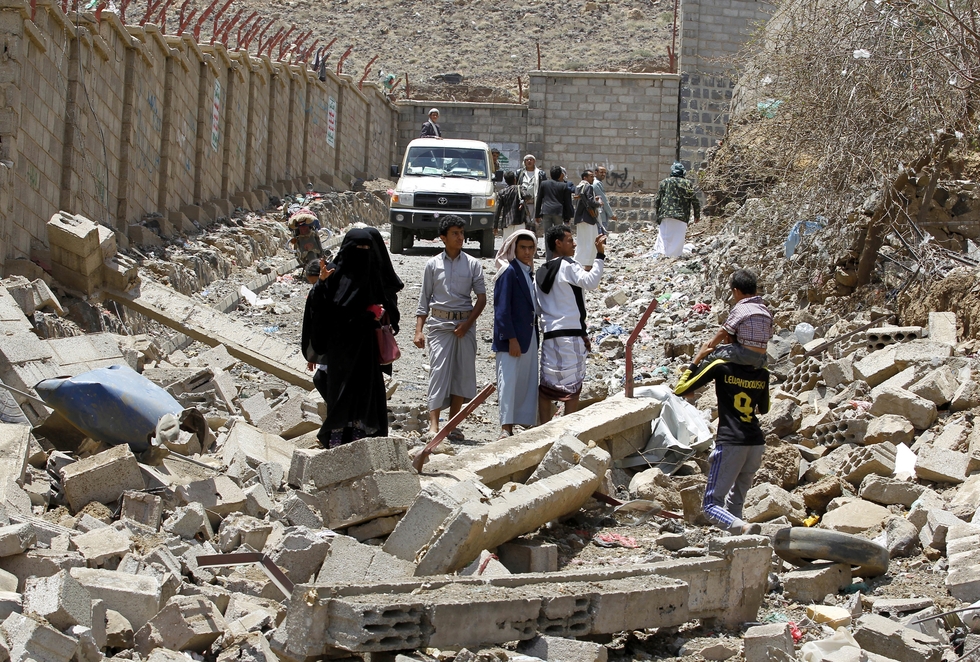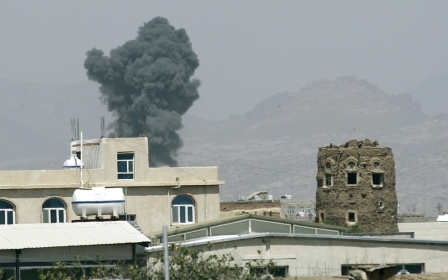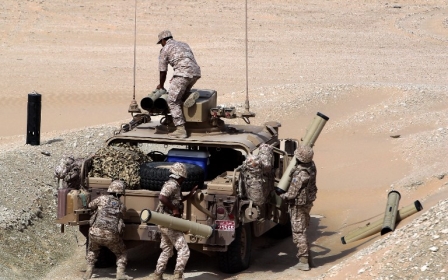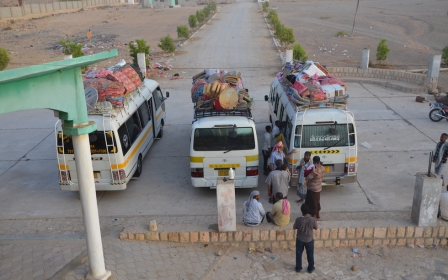Airstrikes pound Yemeni capital as Arab coalition sends in more ground troops

Airstrikes on Al-Sabeen neighbourhood in Sanaa on 6 September 2015
Saudi-led warplanes pounded Houthi positions in the Yemeni capital on Tuesday, an AFP correspondent said, reporting powerful explosions across Sanaa.
Witnesses said targets included the police academy and the headquarters of the security services, both in the heart of the capital, which has been controlled by the Houthi militia since September 2014.
Overnight strikes also hit the Sanaa residences of Houthi leaders, witnesses said.
The strikes comes reports emerged that the Saudi-led coalition has sent 10,000 troops to Yemen after a Houthi missile attack killed 60 coalition soldiers on Friday. Among the dead were 45 troops from United Arab Emirates and 10 Saudis.
More Arab countries within the coalition are sending ground forces to Yemen, with Qatar announcing on Monday that it is deploying 1,000 troops.
A correspondent for the Saudi-owned Al Arabiya channel said that Saudi, Emirati and Qatari ground forces are now in the battleground of the eastern oil province of Marib. Sudan is also expected to send 6,000 troops to Yemen.
According to Al Arabiya, Kuwaiti and Egyptian forces may be on their way to Yemen.
Sources from the coalition forces and the Yemeni National Army told the London based As-Sharq al-Awsat newspaper that the next few days will see the arrival of coalition forces to other parts of Yemen, in order to support the completion of the joint forces’ operation.
The same sources, who wished to remain anonymous, said Qatari and Egyptian forces and those of other countries were involved in the coalition, and will have specific combat missions and will contribute significantly to the liberalization of many Yemeni areas from the grip of Houthi rebels.
The coalition launched its air war against the Houthis when President Abd Rabbo Mansour Hadi fled to neighbouring Saudi Arabia in March after they entered his last refuge, Yemen's second city Aden.
After his loyalists recaptured the southern port city in July, the coalition launched a ground operation which has seen the rebels pushed back from five southern provinces, although they still control the capital Sanaa and much of the north and centre.
New MEE newsletter: Jerusalem Dispatch
Sign up to get the latest insights and analysis on Israel-Palestine, alongside Turkey Unpacked and other MEE newsletters
Middle East Eye delivers independent and unrivalled coverage and analysis of the Middle East, North Africa and beyond. To learn more about republishing this content and the associated fees, please fill out this form. More about MEE can be found here.




